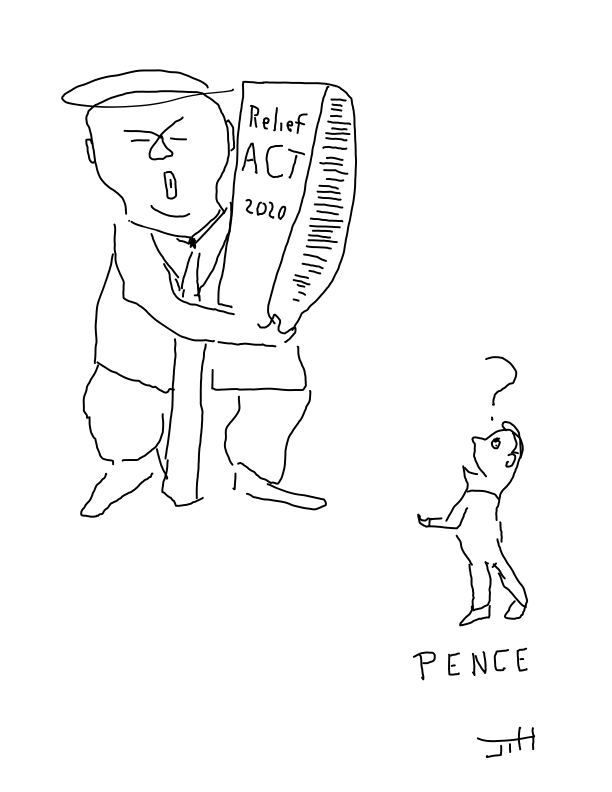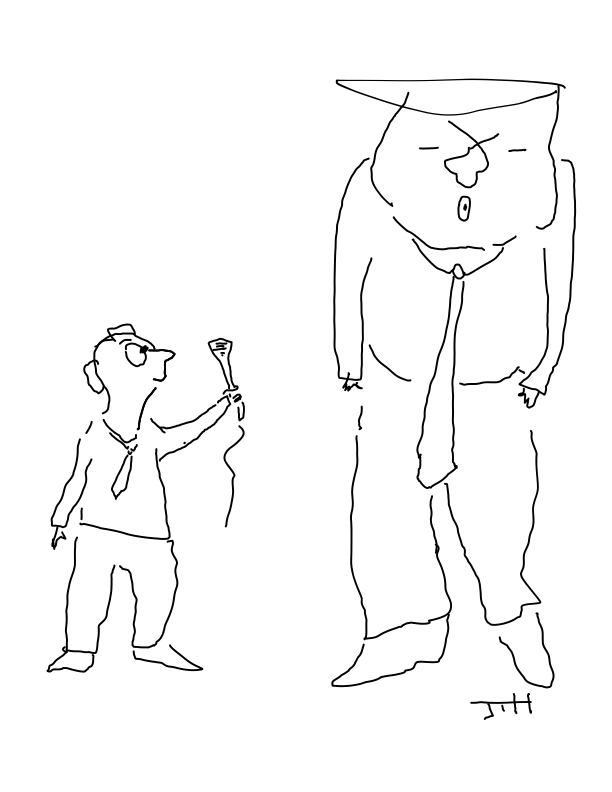Note to reader: this installment marks the last edition of Faux News. I have promised my readers that I will not mention the word “Trump” again and am challenging all other respectable, national news media to do the same. With the Trump word now unmentionable in print, it is not possible for Faux News to continue. It has been a good run and thanks for reading.
December 31, 2020
Dear 2020,
Okay, 2020, you are outa here, and all I can say is that it is about time. Good riddance! Talk about a screw up! There was so much hope when you arrived exactly one year ago at midnight and look what has happened. First of all, you brought Covid-19 with you. Do you have any idea how bad this was and how bad it still is for us? Whose idea was this anyway? Almost two million people have died on the Planet Earth since you arrived, and some 82 million have been infected.
And ln the U.S.? My goodness! We are the world’s richest and most advanced country, yet we have handled this pandemic worse than anyone. What do you have against us? We make up only 4 % of the world’s population, yet account for over 18% of the deaths and 25% of the infections. We are approaching 20 million cases in the U.S. and 350,000 deaths. You could have stood up on Day One and said, “No, not on my watch. I am not going to allow a pandemic to happen on the Planet Earth,” but you just caved.
But these stats do not tell the whole story. We humans are sick of wearing masks and social distancing. We want to hug friends and loved ones. We are weary of the isolation. Our children are suffering under virtual learning, and our elders who end up in nursing homes die alone because visiting, even by family, is not permitted.
This is simply unacceptable. And you do not have an excuse. Everyone knows that the first job of a year is to leave matters in better shape than you found them when your turn came. And you just stood by on the sidelines, watching. What were you thinking? I will tell you one thing: You can forget about getting the “Best Year Award” at the next convention that happens when all the years gather. It will not happen, and, frankly, you will be damn lucky if you don’t get the “Worst Year Award.”
But it is not just Covid. What about all the other bad things than happened on your watch, 2020? Okay, I can’t fault you for Trump. That was 2016’s fault– and, God knows, that was a big screw up too–but you surely did nothing to constrain this scoundrel. His outrageous behavior got worse by the day, and you did not do one thing to stop it—his constant lying, his stoking the fires of division, his assault on the press and free speech, his denial of climate change, his racism, his support for dictators, his egomania and narcissism, his refusal to concede when he lost, his inept handling of the pandemic…. The list is a long one.
Well, he will be replaced in three weeks, but his awful legacy will last a long time, and you will be held responsible for that.
And what about the other major issues that our planet is facing? Have you done anything to help prevent climate change? Temperatures continue to rise. Storms are more violent. Wild fires are worse. The ocean is rising. Deserts are expanding. I would give you a D- at best.
And what about the increasing gap between the rich and the poor in the U.S. and in many other countries? And the widening gap between the rich and poor nations? What about lingering racism in the U.S. and elsewhere? What about the rise of neo-Nazi groups and thugs like the Proud Boys and others that foster hate? And the frayed social safety net and inadequate health care here in the U.S.? There is so much that needs to be done that did not get done on your watch. Shame on you!
So starting tomorrow, January 1, your successor, 2021, will take over. I do not know what you years say to each other at the changing of the guard, but I hope that at the very least you will give your replacement a heads up as to what can be expected. I will admit 2021 is being dealt a tough hand to play—but not one without hope. Year 2021 has an ace in the hole with several vaccines to prevent Covid-19 now starting to be distributed. And there will be a new face in the White House—a man of compassion, empathy and experience. Those are huge, and I suppose I have to give you some credit, 2020, for providing these tools for 2021 to work with.
But 2021 still faces big challenges. Our political divisions continue. Afterall, almost half the country not only voted for Trump but think he is one of our greatest presidents, and over 80% of his hard-core supporters think the election was fraudulent and rigged. 2021 will have to deal with false information and a loss of faith in democracy. The issues of latent racism and economic justice continue, and the climate change clock keeps ticking.
So, one last thing you can do, 2020, before you take off for good is to admit your failings and shortcomings and to inspire your protégée, 2021, to do better. This can happen. I know it can and have faith that if 2021 steps up to the challenge, we can slog our way toward a better nation and better world.
Yours truly,
Joseph T Howell
Editor-in-Chief
Faux News
Final note: Since this is the last issue of Faux News, readers are encouraged to weigh in with your comments regarding both this letter and the series.

